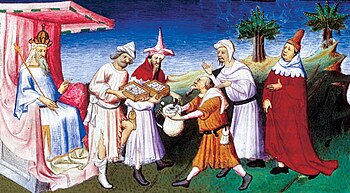During the 87th Academy Awards ceremony on February 22, films about Martin Luther King, Jr. and whistleblower Edward Snowden, Selma and Citizenfour, received statuettes for, respectively, Best Original Song and Best Documentary Feature. But the shutting-out of Selma from other Oscars due to industry backlash against its less than fully idealized portrayal of former US president Lyndon B. Johnson, and host Neil Patrick Harris’s quip that “Edward Snowden couldn’t be here for some treason,” made clear the limits of Hollywood liberal tolerance for dissent.
To update Phil Ochs’s classic indictment: “I cried when they shot Martin Luther King Jr. But Edward Snowden got what was coming. So love me, I’m a liberal.”
Harris might have been tongue-in-cheek, but imagine if he’d made the same remark about a surviving but jailed 86-year-old King. And if he didn’t intend it as political, that merely shows what sort of political assumptions Hollywood takes for granted. For instance, that the very existence of the National Security Agency is not infinitely more a betrayal of American ideals than Snowden’s exposure of its secrets. In fact, the NSA helped implement the federal government’s surveillance of King as portrayed in Selma.
Another dissident subject of an Oscar-winning film (Karl Hess: Toward Liberty, Best Documentary Short Subject) observed in his autobiography Mostly on the Edge that “the support of big business flowed naturally to Lyndon Johnson, who knew how to wheel and deal with corporations that felt they had the right to be treated as virtually a fourth branch of government.” As exemplified by Hollywood’s ties to mostly-Democratic administrations, e.g. Jack Valenti’s move from LBJ’s personal aide to head of the Motion Picture Association of America.
In his acceptance speech at the 53rd Oscars, Karl Hess: Toward Liberty co-director Roland Halle contended that “[Hess’s] ideas on how [to] take control of one’s life I think can map our route toward liberty, and liberty is all this country’s about.” With his statement “that the really American revolution would be to destroy power,” Hess’s notion of what “this country’s about” clearly differed from identifying it with the covert functioning of the NSA. Its documentation of Hess’s journey, from his expulsion from the top ranks of the Republican Party to his pioneering of solar power and other decentralized ecological technologies — all without ever being a liberal, Hollywood or otherwise — offers prescient lessons for bringing liberty to a post-NSA America.
New Yorker Joel Schlosberg is a contributing editor at The William Lloyd Garrison Center for Libertarian Advocacy Journalism (thegarrisoncenter.org).
PUBLICATION/CITATION HISTORY
- “Hollywood Liberals’ dissent has limits” by Joel Schlosberg, University of New Mexico Daily Lobo, 03/02/15
- “Love me …” by Joel Schlosberg, Richmond, Virginia Legacy, p. 7, 03/04/15


